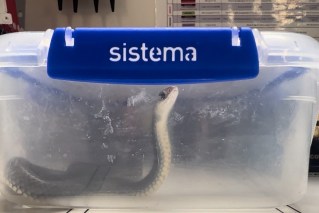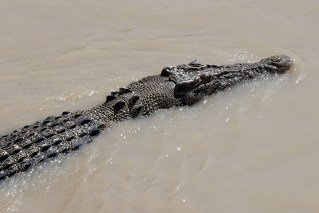No mad cow disease: cattle industry

ABC
The cattle industry say reports that imply a man in New South Wales is dying of mad cow disease are incorrect.
Reports emerged of 63-year-old Frank Burton being diagnosed with a rare neurological condition known as sporadic Creutzfeldt-Jakob disease [CJD].
The disease is similar to the one caused by the consumption of cattle infected with bovine spongiform encephalopathy [BSE], also known as mad cow disease.
• Mad cow disease in NSW
• Flu strikes hard this winter
Justin Toohey, animal health welfare and biosecurity advisor with the Cattle Council of Australia, was frustrated at the media for linking the Sydney case to mad cow disease.
“I thought it was fairly typically alarmist by urban-based media who have little understanding of the background to the issue,” he said.
“As I understand it, from one of the newspaper reports, there are currently 35 cases of CJD in Australia, so why this one is getting so much attention I’m not quite sure.”
Suzanne Solvyns, from the Creutzfeldt-Jakob Disease Support Network, was quick to point out the confusion surrounding prion diseases like CJD.
She said variant CJD, which is caused by consuming cattle infected with bovine spongiform encephalopathy, was vastly different to Mr Burton’s suspected case of sporadic CJD.
“We have never had an identified case of variant CJD in Australia, for which the media’s name is mad cow disease,” she said.
“The human form of prion disease is known as CJD, whereas variant CJD [also known as mad cow disease] is an acquired form associated with the consumption of contaminated beef.”
Mrs Solvyns said there were about 35 cases of CJD in Australia each year, and that 90 percent of those were sporadic, meaning they were rare and occurred by chance, and that the remainder were genetic.
She said only an autopsy could rule out variant CJD for good, but that it was unlikely Mr Burton’s case was linked to mad cow disease given the decline of the disease globally since the outbreak in the UK in the 1990s that killed around 200 people.
Mr Toohey said Australia followed strict standards when it came to livestock biosecurity.
“If it is proven to be variant CJD in this particular patient, it would not have come from Australia,” he said.
“We have a very clean herd [which is] internationally accepted and we are one of 16 countries accepted internationally as having the lowest possible risk.
“It may have been contracted overseas, but having said that the cases of variant CJD internationally have diminished to almost nothing now.”







